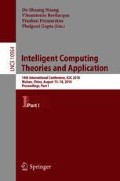Abstract
During the last two decades, much progress has been achieved on the running time analysis (one essential theoretical aspect) of evolutionary algorithms (EAs). However, most of them focused on discrete optimization, and the theoretical understanding is largely insufficient for continuous optimization. The few studies on evolutionary continuous optimization mainly analyzed the running time of the (1+1)-ES with Gaussian and uniform mutation operators solving the sphere function, the known bounds of which are, however, quite loose compared with the empirical observations. In this paper, we significantly improve their lower bound, i.e., from \( \varOmega (n) \) to \( \varOmega (e^{cn} ) \). Then, we study the effectiveness of 1/5-rule, a widely used self-adaptive strategy, for continuous EAs using uniform mutation operator for the first time. We prove that for the (1+1)-ES with uniform mutation operator solving the sphere function, using 1/5-rule can reduce the running time from exponential to polynomial.
Access this chapter
Tax calculation will be finalised at checkout
Purchases are for personal use only
References
Agapie, A., Agapie, M., Rudolph, G., Zbaganu, G.: Convergence of evolutionary algorithms on the n–dimensional continuous space. IEEE Trans. Cybern. 43(5), 1462–1472 (2013)
Akimoto, Y., Auger, A., Glasmachers, T.: Drift theory in continuous search spaces: expected hitting time of the (1+1)-ES with 1/5 success rule. arXiv:1802.03209 (2018)
Beyer, H.-G.: The Theory of Evolution Strategies. Springer, New York (2001). https://doi.org/10.1007/978-3-662-04378-3
He, J., Yao, X.: A study of drift analysis for estimating computation time of evolutionary algorithms. Nat. Comput. 3(1), 21–35 (2004)
Huang, H., Xu, W., Zhang, Y., Lin, Z., Hao, Z.: Runtime analysis for continuous (1+1) evolutionary algorithm based on average gain model. SCIENTIA SINICA Informationis 44(6), 811–824 (2014)
Jägersküpper, J., Witt, C.: Rigorous runtime analysis of a (μ + 1) ES for the sphere function. In: 7th International Proceedings of Genetic and Evolutionary Conference, Washington, D.C., pp. 849–856. ACM (2005)
Jägersküpper, J.: Algorithmic analysis of a basic evolutionary algorithm for continuous optimization. Theor. Comput. Sci. 379(3), 329–347 (2007)
Jägersküpper, J.: Probabilistic runtime analysis of (1 +, λ) ES using isotropic mutations. In: 8th International Proceedings of the Genetic and Evolutionary Computation Conference, Seattle, WA, USA, pp. 461–468. ACM (2006)
Li, S.: Concise formulas for the area and volume of a hyperspherical cap. Asian J. Math. Stat. 4(1), 66–70 (2011)
Neumann, F.: Expected runtimes of a simple evolutionary algorithm for the multi-objective minimum spanning tree problem. Eur. J. Oper. Res. 181(3), 1620–1629 (2007)
Qian, C., Bian, C., Jiang, W.,Tang, K.: Running time analysis of the (1+1)–EA for onemax and leadingones under bitwise noise. In: 19th International Proceedings of the Genetic and Evolutionary Computation Conference, Berlin, German, pp. 1399–1406. ACM (2017)
Qian, C., Yu, Y., Jin, Y., Zhou, Z.-H.: On the effectiveness of sampling for evolutionary optimization in noisy environments. In: Bartz-Beielstein, T., Branke, J., Filipič, B., Smith, J. (eds.) PPSN 2014. LNCS, vol. 8672, pp. 302–311. Springer, Cham (2014). https://doi.org/10.1007/978-3-319-10762-2_30
Tang, K., Yang, P., Yao, X.: Negatively correlated search. IEEE J. Sel. Areas Commun. 34(3), 542–550 (2016)
Wegener, I.: Methods for the analysis of evolutionary algorithms on pseudo–Boolean functions. In: Sarker, R., Mohammadian, M., Yao, X. (eds.) Evolutionary Optimization, pp. 349–369. Springer, Boston (2003). https://doi.org/10.1007/0-306-48041-7_14
Yu, Y., Qian, C., Zhou, Z.-H.: Switch analysis for running time analysis of evolutionary algorithms. IEEE Trans. Evol. Comput. 19(6), 777–792 (2015)
Author information
Authors and Affiliations
Corresponding author
Editor information
Editors and Affiliations
Rights and permissions
Copyright information
© 2018 Springer International Publishing AG, part of Springer Nature
About this paper
Cite this paper
Jiang, W., Qian, C., Tang, K. (2018). Improved Running Time Analysis of the (1+1)-ES on the Sphere Function. In: Huang, DS., Bevilacqua, V., Premaratne, P., Gupta, P. (eds) Intelligent Computing Theories and Application. ICIC 2018. Lecture Notes in Computer Science(), vol 10954. Springer, Cham. https://doi.org/10.1007/978-3-319-95930-6_74
Download citation
DOI: https://doi.org/10.1007/978-3-319-95930-6_74
Published:
Publisher Name: Springer, Cham
Print ISBN: 978-3-319-95929-0
Online ISBN: 978-3-319-95930-6
eBook Packages: Computer ScienceComputer Science (R0)

